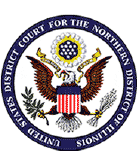Chicago Attempted Murder Lawyer
Skilled Attorneys for Attempted Murder Defense Charges in Chicago
Murder is one of the most serious offenses under the law. While there are several different offenses that may be classified under the general category of homicide, the most severe charges will apply in cases involving first degree murder. This offense may apply if a person is accused of intentionally killing someone else. However, what if a person is accused of intentionally acting in a manner that was likely to cause someone's death, but nobody was actually killed? In these cases, they may be charged with attempted first degree murder, which is a serious felony that can result in harsh consequences.
Those who have been accused of attempted murder or charged with a criminal offense related to the attempted killing of someone else should be sure to secure legal representation immediately. At the Law Offices of James F. DiQuattro, our experienced, aggressive criminal defense attorney can explain the specific charges that may apply in these situations and the consequences of a conviction. We will evaluate potential defenses and provide effective representation from the beginning to the end of a criminal case. We will work to have charges dismissed whenever possible, or we may be able to negotiate a reduction of charges and minimize the penalties that will apply if a defendant is convicted.
Issues That Can Affect Attempted Murder Cases
Illinois law states that a person can be charged with a criminal offense if they intend to commit a specific crime and take any actions that constitute significant steps toward carrying out these plans. In cases involving murder, taking actions that are meant to inflict fatal injuries on a person or acting on plans to intentionally kill someone may result in charges of attempting to commit first degree murder.
Attempted murder may involve a variety of activities. For example, if a person had a personal grudge against someone else, went to that person's house while armed with a knife, confronted the person, stated that the person deserved to die, and attempted to fatally stab the person, this will likely be considered an attempted first degree murder.
Criminal charges of attempted murder may apply even if it was impossible to carry out the murder due to circumstances the defendant was unaware of. For instance, if the defendant in the example above was carrying a knife that was not sharp enough to inflict a fatal wound, they may still be charged with attempted first degree murder if prosecutors can demonstrate that they acted with the intent to kill the other person.
Attempt to commit first degree murder is a Class X felony. In most cases, the minimum sentence for a conviction will be six years, and the maximum sentence will be 30 years. However, sentences may be increased based on the circumstances of an attempted murder. If a person was armed with a gun, 15 years may be added to their sentence. If they discharged a gun, 20 years may be added. If the discharge of a firearm led to the death of someone other than the intended victim, or if it resulted in great bodily harm or permanent disability to any party, a sentence may be increased by 25 years, or the defendant may be sentenced to life in prison. If a person attempted to kill a police officer, a correctional officer or employee, or an emergency medical technician, they may be sentenced to a minimum of 20 years and a maximum of 80 years.
Contact Our Chicago Attempted Murder Defense Lawyer
Accusations of attempted murder should be taken seriously, since a conviction on these charges can lead to a lengthy prison sentence and other consequences. At the Law Offices of James F. DiQuattro, we can help defend against these charges, and in some cases, we may be able to challenge the evidence presented by prosecutors and show that a defendant did not actually intend to kill anyone. We can work to have these charges dismissed or determine whether other charges, such as aggravated assault, may be more appropriate. Our goal is to our clients resolve these cases quickly and effectively so that they can move forward with their lives. To set up a complimentary consultation, contact our office by calling 312-627-9482.















